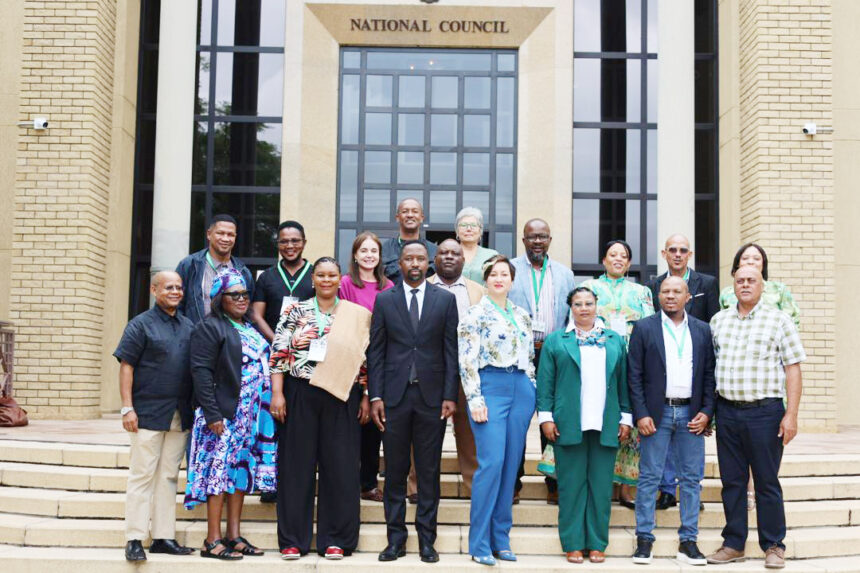Sakeus Iikela
A South African member of parliament has called for the urgent implementation of a bilateral agreement on preserving the Khoekoegowab language between Namibia and South Africa.
Speaking in Windhoek on Monday, Newrene Klaaste, Speaker of the Northern Cape Provincial Legislature, warned that without concrete efforts between the two countries, the language – a vital part of the region’s cultural heritage – could become extinct.
“Our bilateral agreements with Namibia include education and the preservation of the Nama language. It is crucial that we assess the progress of this agreement. We fear that if we do not actively work to preserve the Damara-Nama language [Khoekoegowab], it will eventually disappear,” she said.
Klaaste made these remarks as part of a high-level South African delegation currently in Namibia for a benchmark study visit to the National Council.
The delegation consists of 19 Members of the Legislature, the Secretary to the Legislature, and 20 officials.
The purpose of the visit is to conduct a benchmarking activity that affords them the opportunity to learn best practices on issues of oversight; public participation; law-making process; Members’ statements; and resolution tracking, all aimed towards improving their systems and processes in their legislature.
The delegation would further strengthen the bonds of friendship, cooperation, and mutual development between institutions in the two nations.
Klaaste emphasised the preservation of Khoekoegowab is not just about cultural heritage, but also about ensuring future generations inherit their rightful linguistic and historical identity.
She further stressed that the agreement should not remain a document with no tangible outcomes, but be implemented by both governments.
The Speaker highlighted the historical injustices faced by Khoekoegowab communities in South Africa, many of whom were forcibly displaced during apartheid.
She reiterated that preserving them is important to restore and maintain the heritage of these affected communities.
Klaaste proposed the establishment of an exchange programme between Namibia and South Africa to further facilitate the sharing of knowledge and strategies between the two parliaments.
*Sakeus Iikela works for the National Council.



